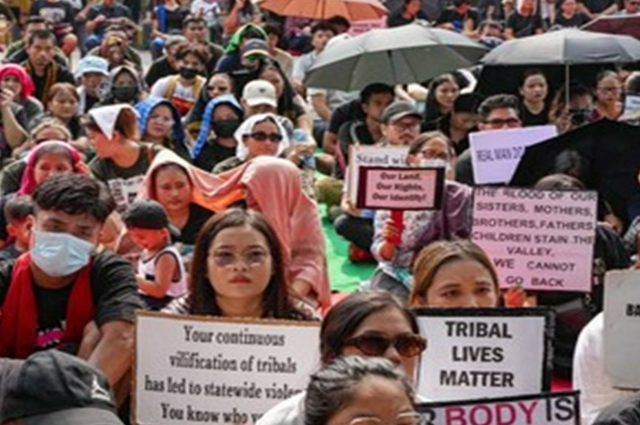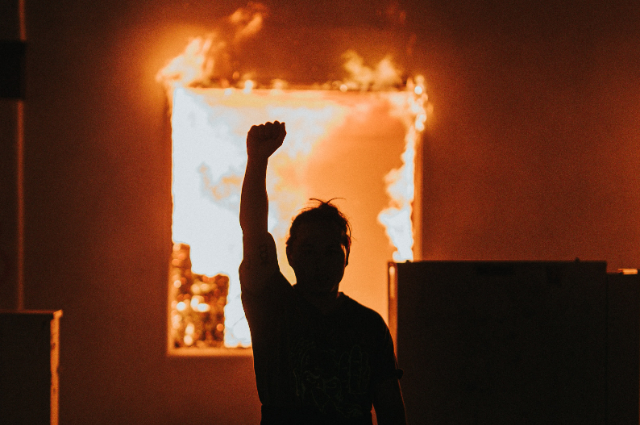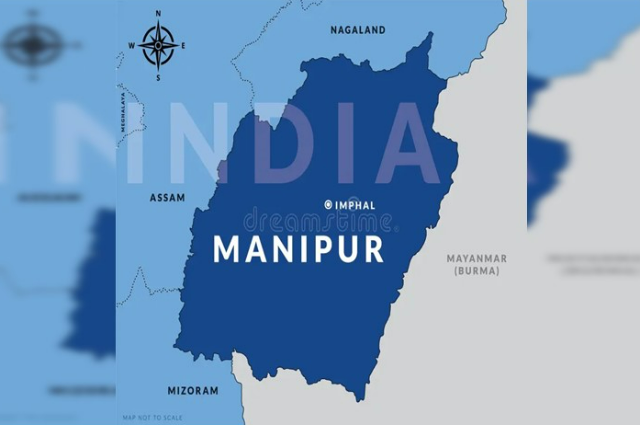
Introduction: understanding roots and implications of Violence in Manipur
Manipur, a northeastern state of India has been struggling with endless brutality and ethnic conflicts for several months. This article aims to shed light on the intricacies of the ongoing unrest, exploring the context of ethnic conflicts, underlying causes, and the impact it has on the region and its people. By investigating the critical experiences of the Manipur population and the circumstances which lead to such ethnic tensions. The article also emphasizes that even during wars patriarchy and male chauvinism exist by outraging the modesty of women. This piece seeks to make a deeper understanding of the challenges faced by Manipur people and are we at a loss of humanity ? Lastly, it presents an analysis on what are the potential paths towards maintaining a peaceful and unity state.
Context of Ethnic Conflicts in Manipur: from where did it all start?
The state is witnessing violence between the majority Hindu Meitei community and the hill tribes, primarily the Christian Kukis. The Meitei, who hold control over the valley, including the capital Imphal, have long asserted that the Kukis enjoy unfair privileges due to their tribal status. On the other hand, the Kukis are against the Meitei's demand to be recognized as "scheduled tribes" by the state. This recognition would grant the Meitei access to government jobs through tribal quotas and allow them to settle in tribal areas. The Kukis are concerned that this move would only strengthen Meitei's economic dominance and further jeopardize their already limited livelihood opportunities.

The divisions between the two communities have intensified significantly, with both sides displaying mistrust, anger, and even hatred towards each other. The conflict began on May 3, 2023 ; when a tribal solidarity march organized by tribal civil society groups in Churachandpur turned violent. The apparent reason for these clashes seems to be the Meitei community's powerful demand for ST (Scheduled Tribe) status. Presently, the Meiteis, who make up approximately 60 percent of the population, are only allowed to inhabit 10 percent of Manipur's total land area. The remaining area, consisting of the hill districts, belongs to the tribals, primarily the Kukis and Nagas.
All Tribal Students’ Union Manipur (ATSUM) organized the 'Tribal Solidarity March' on 27th April 2023 in response to a meeting held on 21st April 2023 by various tribal students' organizations. During the meeting, these organizations expressed their disagreement with the Meitei community's request for Scheduled Tribe (ST) status. In light of this, they decided to conduct marches in all hill district headquarters with the theme, 'Come Now Let Us Reason Together'.
The meeting of the tribal students' organizations was convened after a High Court order on 19 April 2023. The order, in response to a petition filed by eight representatives of the Meitei Tribe Union (MTU), directed the Manipur government to provide its recommendation regarding the inclusion of the Meitei community in the ST list within four weeks. However, the Supreme Court intervened, staying the order and deeming it a factually wrong judgment.
Reason why the Meitei-Kuki Conflicts escalated into a larger issue?
The Meitei-Kuki violence was sparked by the High Court's instruction to the Manipur Government, but there had been underlying tensions due to the Kuki community's growing resentment towards the Meitei-dominated State Government. The Manipur Government's recent actions and decisions created feelings of discrimination and insecurity among the Kuki community, with Chief Minister Biren Singh alleging the presence of illegal migrants from Myanmar in reserved and protected forests.
The fear among unlawful immigrants from Myanmar is so intense that their Government allegedly halted the Free Regime Movement (FMR) with Myanmar and apprehended 410 'illegal migrants' from the country. Additionally, the Government continued the assessment of Reserved Forests, Protected areas, wetlands, and wildlife. In the process, the State Government 'recognized' the encroachers and issued eviction notifications to them.

As some of these removals were done with force, clashes occurred between villagers and forest and police officials. The efforts to eliminate 'illegal encroachers' from Myanmar are seen by the Kukis as directed against their community because they consider the Chin refugees from Myanmar as part of their own tribe, namely the Chin-Kuki tribe. Nevertheless, the Manipur Government stated that out of the total 291 encroachers removed from Manipur's forests between 1st January 2017 and 18th April 2023, 160 were from the Meitei community, indicating that the Kuki community was not the only one being targeted.
Meanwhile, another area of disagreement is the existing land disparity among Indigenous groups: Meiteis are prohibited from purchasing lands in the aforementioned hilly areas, whereas Kukis and other tribal communities have the freedom to buy lands in the valley.
Moreover, the arrival of refugees after the 2021 military coup in neighbouring Myanmar — specifically those from Sagaing region, who have strong connections with the Kukis — has further led to feelings of insecurity for the Meitei Indigenous community. Even though the true decision-makers in the conflict are those who control weapons, drugs, and politics, the ones most impacted in both communities are women and children. Different ethnic identities were exploited in the current conflict to serve the interests of a select few.
Violence against women: rape being weaponized in times of conflict

It is widely recognized that women's bodies often become a battleground during riots and conflicts; rape and sexual assault are employed as tools of violence to punish them. According to survivor recounts of such incidents, the crime is frequently motivated by a desire for revenge against the "other," manifested through the violation of women's bodies, which are considered symbols of honour for their communities.
The state's efforts to resolve the conflict, including the army and other security forces have also faced allegations of committing severe sexual violence in regions like Indian-administered Kashmir and the north-eastern states. The consequences endured by women due to this bodily violence are usually concealed and deeply personal. Despite the women's movement striving to raise awareness about this issue for many years, it sadly persists.
The sexual assault of Kuki women in Manipur is a clear example of this wherein a video got surfaced on 19th July. The distressing footage, showing the women crying, in pain, and pleading for mercy from their attackers, is deeply disturbing to witness. The delayed arrest of the perpetrators, more than two months after the incident was reported to the police, has shaken people's confidence in the authorities. This is particularly concerning since many of the attackers are easily identifiable in the video.
The public outcry following the release of the video in India has brought attention to this heinous crime. It has also raised questions about the state's failure to support the survivors and has compelled Honorable Prime Minister Mr. Modi to address the ethnic violence tearing Manipur apart. To instill confidence in Manipur, especially among the minority Kuki community, there is mounting pressure on the authorities to act swiftly against the culprits and ensure justice for the victims. People across the country believe that such incidents should not be happening in modern India.
The Supreme Court bench led by Chief Justice of India Honourable Justice D.Y. Chandrachud, conveyed their distress regarding the video showing two women being paraded naked in Manipur. The court deemed this act as "utterly unacceptable" and "the most severe infringement of both constitutional and human rights." They sternly advised the government to take immediate action, cautioning that if no steps are taken, the court will intervene.
Society needs to change and sensitivity towards other gender is deeply required.
In times of war, when a soldier loses their life, they are respected, but if a woman is forced to be in the horrifying crime of rape and death during the conflict, society tends to overlook her and wants to forget her. Even if the woman manages to survive the rape, her spirit will be shattered. Yet, when victory is achieved in the war, men are honoured as the strongest and their contributions are celebrated, often disregarding the immense hardships endured by women throughout the entire period.
Even during the World Wars, the Delhi Riots, the Russia-Ukraine conflict, and other ongoing conflicts worldwide, the dignity of women is being violated, forcing them into nudity and subjecting them to rape, even gang rape. While the focus is often on the frontlines and actions of men during these wars, the suffering and atrocities endured by women behind the scenes often go unnoticed.
We are all influenced by Patriarchy's teachings, which dictate that Men should not show emotions, adhere to traditional masculinity stereotypes, and belittle others using gender-based comparisons. Simultaneously, Patriarchy grants men authority over women. It's crucial now to educate sons just as we educate daughters about society, encouraging them to respect women and become true men who value and safeguard their dignity instead of violating it.
How do Manipur conflicts impact international geopolitics in the highly sensitive region that borders Myanmar and is close to China?
The presence of insurgency and narcotic trafficking poses a dual threat to Manipur and has significant ramifications for neighboring regions. The conflict in Manipur could potentially re-ignite underlying tensions in other parts of Northeast India, which is home to diverse ethnic groups with competing claims to resources. Furthermore, Manipur's situation is intricately connected to broader ethnic conflicts that extend beyond national borders.
For instance, the Kuki community in Manipur shares ethnic ties with groups in neighboring Myanmar, which is grappling with a complex civil conflict. Since the military coup in Myanmar in 2021, the country's army has escalated its counter-insurgency efforts in the northwest, using airstrikes and leading to an increase in refugees seeking safety in India's northeastern states. This influx of refugees from Myanmar has triggered disputes in Manipur, particularly within the Meitei community, who are opposed to accommodating refugees from Myanmar, many of whom share cultural affiliations with the Kuki and Naga communities. The emerging tensions and military movements in the Northeast present a concerning security scenario for northern India.
Given the ongoing border disputes between China and India and the longstanding conflict in Jammu and Kashmir, the unchecked communal violence in the Northeast adds an additional layer of challenge for India, as it must deal with both external and internal threats concurrently.
Conclusion
Manipur's past is connected with intricate ethnic issues, which have regrettably led to violence and instability. Achieving lasting peace and resolving the underlying reasons for these conflicts demand a holistic strategy that includes acknowledging historical grievances, involving all relevant parties actively, and promoting sustainable development initiatives. Only by collaborating together can Manipur progress toward a future characterized by unity, progress, and prosperity for its entire population. In Manipur, all communities have endured immense suffering over the years, witnessing their rice fields transformed into battlegrounds, and their peace shattered by a few power-hungry individuals who intentionally fostered division and violence. To heal the longstanding distrust and historical wounds that have divided Indigenous communities, it will be crucial to foster citizen-centric dialogues and involve civil society. Initiatives focused on Indigenous peacemaking, truth-telling, and forgiveness ceremonies could offer a starting point to mend the fractured hearts and minds of communities that have endured violence for decades. Additionally, empowering women in peacebuilding will play a significant role in establishing responsive governance and transparency in the region, marking the beginning of a lengthy but vital process.
Disclaimer: This article is based on various facts and references taken from research blogs, Media resources, and studies. It doesn't attempt to hurt any sentiments and doesn’t discriminate among any ethnic community, caste, religion, gender, sex, or place of birth. The author and Reflections.live team is not liable for any sort of legal action against them. This article contains details based on true events and some readers may find it distressing. By reading this blog, readers give consent that the views in this article are opinions based and readers might agree or disagree with the same for which they can’t sue the author or Reflections.live team or people associated with this blog directly or indirectly, for any sort of disagreements in case they have. Further Reflections.live team and the author have high regard and respect for all opinions.
. . .
References:
https://indianexpress.com/article/opinion
https://www.economist.com/asia
https://www.outlookindia.com/national
https://www.livemint.com/news/india
https://www.bbc.com/news/world-asia-india
http://e-pao.net/epSubPageExtractor.asp

